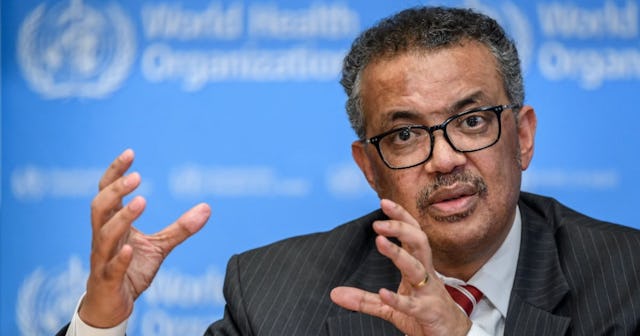WHO Hopes Coronavirus Pandemic Will Be Over In Less Than 2 Years

The Director-General of the World Health Organization hopes that the coronavirus pandemic will be over in less than two years
When the first cases of COVID-19 were identified in Wuhan, China in December 2019, most of us didn’t realize that it was the beginning of one of the worst pandemics in the history of the world. Over the last eight months, nearly 23 million people worldwide have been infected with the virus, and over 800,000 lives were lost as a result, according to Johns Hopkins University & Medicine. Unfortunately, it seems, the pandemic isn’t end anytime soon. On Friday, WHO Director-General Tedros Adhanom Ghebreyesus announced during a news conference in Geneva that we likely have another year-plus to go.
“We hope to finish the pandemic in less than two years,” he said, pointing out that the 1918 Spanish flu pandemic took two years to overcome. He added that the biggest difference between that pandemic and this one is that due to a progression in technology and the ability for people to travel freely around the world, there is more potential for spread.
“In our situation now with more technology, and of course with more connectiveness, the virus has a better chance of spreading, it can move fast because we are more connected now,” Ghebreyesus said.
However, science has also advanced, giving us more of an opportunity to attack the virus with medicine. By “utilizing the available tools to the maximum and hoping that we can have additional tools like vaccines, I think we can finish it in a shorter time than the 1918 flu,” he continued. He hopes that once a vaccine is developed, the virus can be eliminated sooner than two years, and also points out that “national unity, global solidarity” can also help.
The Spanish flu, which wreaked havoc between February 1918 and April 1920, infected nearly 500 million people around the world and killed as many as 50 million. The WHO explained that the pandemic was a three-wave event. The second, occurring in that last half of 1918, was the most deadly.
Ghebreyesus warned that just because we have made progress over the last few months, the battle hasn’t been won. “Progress does not mean victory,” he said. “The fact remains that most people remain susceptible to this virus.”
He did note that there may be a silver lining to the pandemic: The world might become a better place.
“Throughout history, outbreaks and pandemics have changed economies and societies, this one will be no different,” he continued, pointing out that due to the pandemic, it “has given us a glimpse of our world as it could be: cleaner skies and rivers… Building back better means building back greener.”
“COVID-19 is a once-in-a-century health crisis,” he continued. “But it also gives us a once-in-a-century opportunity to shape the world our children will inherit — the world we want.”
Information about COVID-19 is rapidly changing, and Scary Mommy is committed to providing the most recent data in our coverage. With news being updated so frequently, some of the information in this story may have changed after publication. For this reason, we are encouraging readers to use online resources from local public health departments, the Centers for Disease Control, and the World Health Organization to remain as informed as possible.